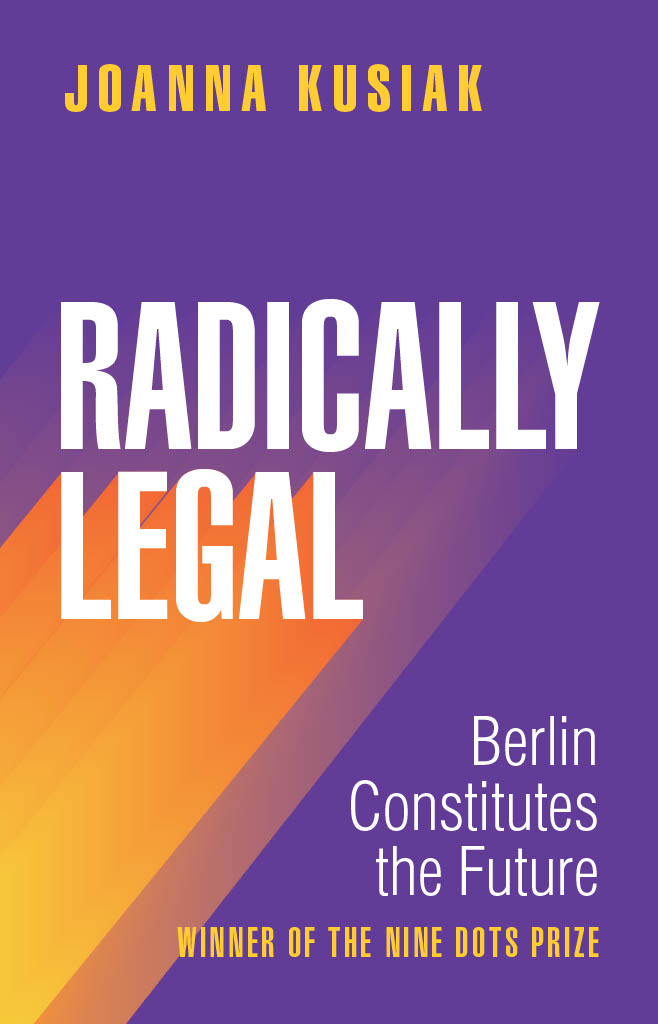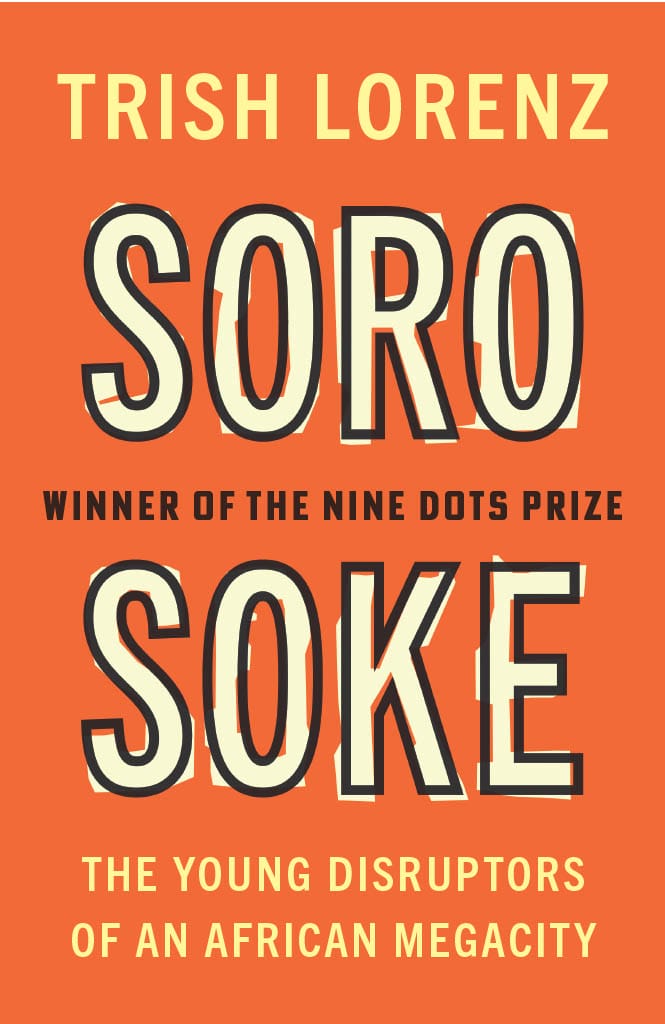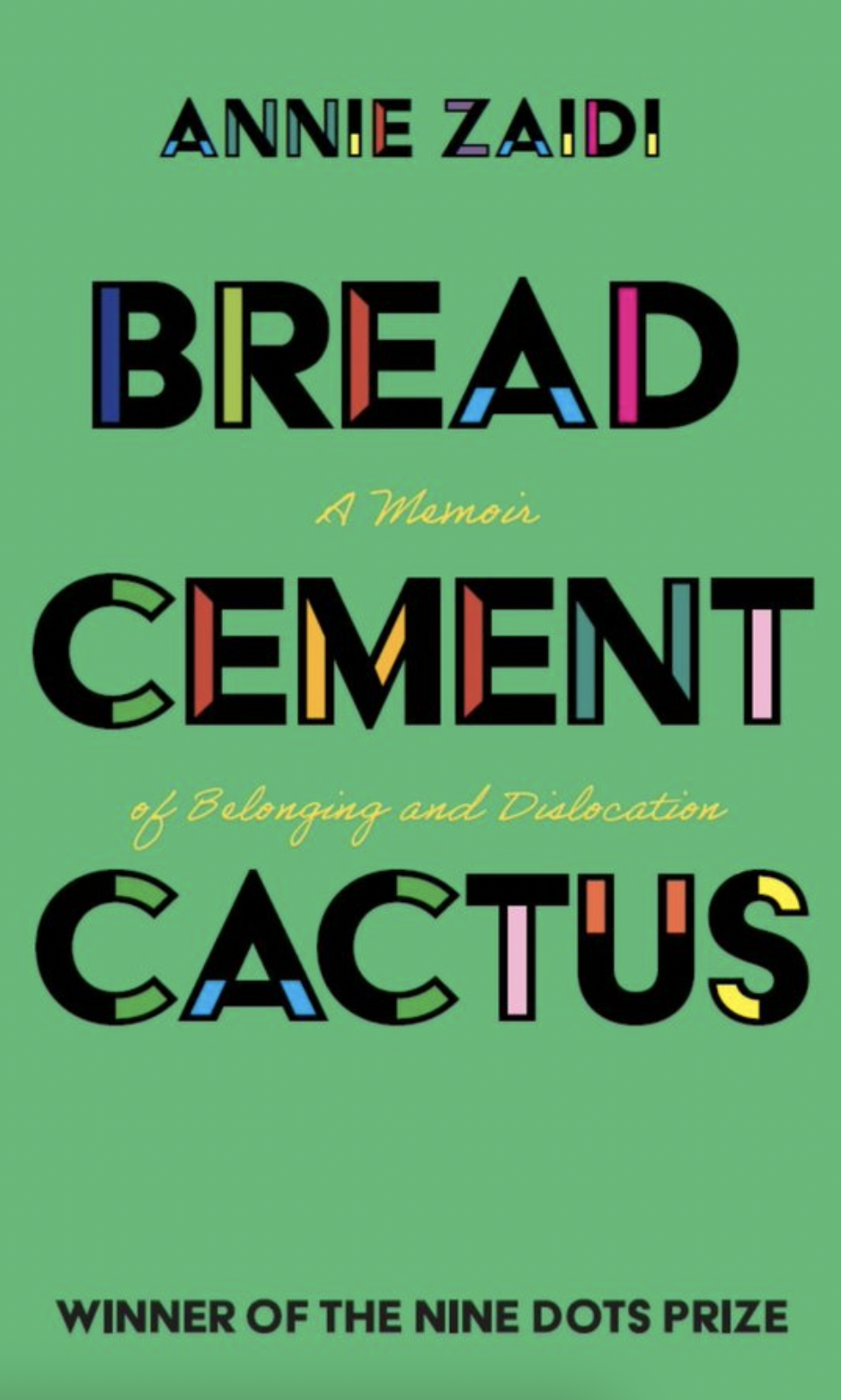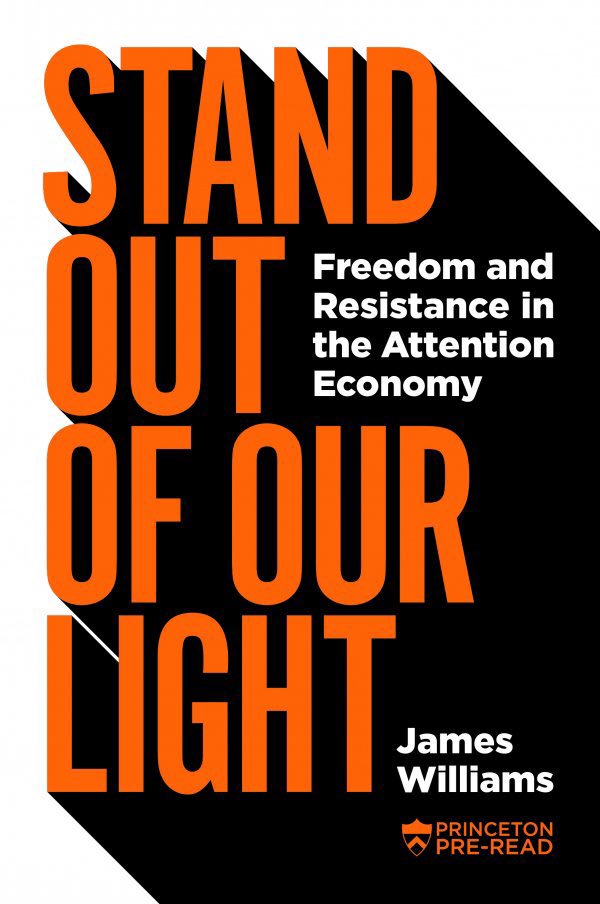Transcript of Nine Dot Prize podcast 1: Writing Non-Fiction Creatively
12 October, 2020
Jane Tinkler (Nine Dots Prize)
Hello, and welcome to this podcast for anyone considering applying for the Nine Dots Prize, or interested in writing non-fiction more generally. I’m Jane Tinkler, Senior Manager for the Nine Dots Prize, and this year we’re looking for entries that will really stand out. One of the challenges is to produce non-fiction entries based on research and evidence, which are also written with verve and style. So, we’ve asked three successful writers for advice on how to write non-fiction creatively, and they’ve got plenty of tips, techniques and ideas to pass on to you.
Maria Farrell
Most of us when we’re reading non-fiction, we want not just our intellect to be engaged, but our emotions.
Adam Kay
If you just make big, broad points, and don’t show any examples then it’s very difficult to actually make your case.
Anne Applebaum
Make sure when you’re writing to think not only about the subject but also about your use of language, how your book is structured.
Jane
Let’s begin with an obvious starting point – how to organise your material.
Adam
My name’s Adam Kay and I’m the author of This Is Going to Hurt – Secret Diaries of a Junior Doctor. The book is a set of diaries that I kept contemporaneously at the time I worked as a junior doctor. And it hopefully represents what it means to be a junior doctor in terms of the sad stuff and the funny stuff and the revolting stuff and the mundane bureaucracy and the high-octane stuff, but ultimately the impact the job has on a human being. The challenge was going through these enormous reams and reams of diaries – some of which was extremely boring, you know, did Caesarean section number 355 today – and trying to get the balance right of the different types of stories – I felt like I was at a sound desk turning up and down all the different channels. We had a discussion about whether the diaries should read as very raw and exactly as they were, so if it was a Post It with a few bullet points, we’d just do that, but we made the decision it would be better if it was easier to read, which I guess is fair enough.
Maria
I’m Maria Farrell and I write both fiction and non-fiction. I write about technology, business models, economic structures, social uses – but fundamentally I really write about power, how technology changes who has power. On the non-fiction side I write reports, essays, articles, journalism – all of that good stuff. And on the fiction side, I write what we call ‘think tank fiction,’ which is for organisations that want to imagine what the world is going to look like in the next couple of decades – I basically write stories for them which help them to understand how the future is going to look and feel.
To make your non-fiction sing I think you have to think about, who’s my protagonist here? Or who are my several protagonists? Who’s the point of view, who are the people that are being affected and also who are the people who are driving things forward? Often you will find individual characters that will drive your story forward. Interview them, talk to them, get a feel for how they speak and how they look at the world – I think that’s really important.
Anne
I’m Anne Applebaum – my last three books have been history books – all histories of Central and Eastern Europe. And they’ve really all been books that try to explain and understand the phenomenon of the communist totalitarian regimes. Even at the stage when I’m doing the research, when I’m thinking about the subject, I’m already mentally working out which are the stories I’m going to use, which are the examples? In other words, I’m kind of writing the book as I’m researching the book and thinking ahead about the shape of it – rather than doing lots and lots of research and then sitting down at the end of five years and saying, oh no, what do I do now? It doesn’t mean that you need a rigid structure before you begin – and of course you can change it – but always be thinking, how am I going to use this fact, this story, this piece of archive in the final product?
Jane
So, start by thinking about the form of your piece, the ideas and key themes you want to include, whose voices and stories you want to highlight. But how do you then make your writing really creative – something which will stand out? In Maria’s case, she often uses fiction as a way of exploring contemporary, factual issues.
Maria – reading from ‘Falling for Mushi’ written for the Internet Society’s Global Internet Report
Last year a client hired me to write about two dozen near future science fiction short stories about how the world will look and feel in about 15, 20 years – and so I wrote this one called Falling For Mishi which is basically an idea about what if we had a device and a platform that we actually trusted and that worked for us?
So, it’s basically written like it’s a newspaper article – and it starts:
Mishi, is she a neutral intermediary, a digital agent or perhaps even a guardian angel? I put these questions to Mishi’s creator, Imani Armah, the Ghanaian technologist and entrepreneur. “I think of Mishi as a best friend or perhaps your wiser twin,” Imani says, with a slightly wistful smile. “Mishi knows your weaknesses, but she doesn’t play on them. She asks you simply how much you want to share.” “Or how little,” I interject.
So, the reason I chose to write a short little science fiction short story really was because we’re almost designed, hard wired I would say, to want stories, to root for people, and so when we’re reading something like that, an awful lot more information is going in. If you’re looking at simple prose, most people don’t remember most of what they read, but if you think about fiction, you think about characters and feelings and settings, you’re probably still working on them in your unconscious, 5, 10, 15 years later, and that’s what in a way this client wanted, to have people still thinking about something that they see as a problem a long time after they put the report down.
Jane
And you can also be imaginative in how you bring colour to the research you’re using to highlight your ideas. What about including some of your own experiences or other personal testimony?
Anne – reading from Iron Curtain: The Crushing of Eastern Europe, 1944 – 1956
I always use individual accounts – because I’m writing about particular times and places and I always feel that the people who were there describe it better than I can.
This is an extract from Iron Curtain: The Crushing of Eastern Europe, 1944 – 1956 and it’s the opening of the first chapter of the book.
The end of the War, wherever and whenever it came, brought with it an abrupt and eerie silence. “The night was far too quiet,” wrote one anonymous chronicler of the War’s end in Berlin. On the morning of April 27th 1945, she went out of her front door and saw “no-one, not a civilian in sight, the Russians have the streets entirely to themselves. But under every building people are whispering, quaking. Who could ever imagine such a world, hidden here so frightened, right in the middle of the big city?”
That’s an extract that shows how you can use real memoirs, real testimony, you can pull them together from different places and then you can link them together to make a point. My point was I wanted to explain what it felt like to live through the very end of the War – and what an extraordinary feeling it was to be there at the time – and so I wanted to use real people’s voices. I know they’re subjective and I don’t use them as absolute proof and actually the way I write history books I always combine the use of archives and the use of testimony together – you can never reproduce the past precisely, but you can use these different kinds of sources to reflect on one another and get something closer to reality.
Adam
There’s a difficult balance between the broad and the personal in non-fiction writing. I thought no one would care in the slightest about my life – and all they would want to read about would be hospital anecdotes, be they funny or sad or gross or whatever. And I stripped out almost all of my life from the book – and the first note I got back from Francesca, my editor at Picador, was, “We want to know more about you.” And then I put in a couple of reluctant entries and then it would come back with, “I really loved those bits, how much more have you got of that?” And I resisted every single time, but a lot of the feedback that’s followed the book has been saying that those are the more popular bits and she was absolutely right and I should have given more of myself from the start. For entrants to the Prize, I don’t think there’s a right or wrong answer about how personal or not to make it – but do bear in mind, learn from my mistakes, that people are interested in you. I think ultimately we need to care, we need to have something to grab on to.
Jane
Don’t be afraid then to be creative or to adopt an unusual approach to the question. You can also be imaginative with the ways that you build your ideas, which will lead the reader through your entry.
Next, one of the most fundamental questions for any writer – language.
Anne
I’m not against long words or particularly specialist words if that fits your topic, but as much as possible. But I always try to use conversational language – as if I’m talking to somebody. You want the book to be something that people feel is accessible – you don’t want to use jargon. I try to use everyday language – you want language that’s somehow alive.
Adam
I think there’s a very old-fashioned belief that academic writing of any description has to be a little bit dry. I don’t think that’s true at all – there are so many wonderful books tackling difficult issues – either difficult emotionally or difficult in their complexity, that use a lightness of touch in the writing. And I think all that does is makes it more readable, it doesn’t make it less academic, it doesn’t make it flippant.
Maria
Sometimes I think when people are writing they feel they need to claim larger words in order to show that they have a right to say what they’re saying. Although on the other hand, I do think there’s a lot to be said for style – you know, for having shorter sentences and longer sentences, for dropping in dialogue that you’ve managed to cull from perhaps interviews, for painting the scene, for telling you know where you are, what it sounds like, what it smells like. All of those things are great.
Jane
But how do you engage the reader if your subject matter is complex or emotionally gruelling, such as Anne’s writing about the Soviet labour camps?
Anne
I always try to tell stories that are difficult but that people feel they need to know. I know you probably don’t want to read a book about the gulag, but it’s my job to persuade you that you should – that it’s your moral obligation to do it and for example, my books very often have introductions which relate the subject to current politics – and that’s on purpose, that’s to explain to readers – here’s why I think this is something you need to read. I know that not all professional historians have liked the fact that I do that, but I feel it’s needed to, you know, you need to shake the reader and say, you need to know this and here’s why.
Adam – reading from This is Going to Hurt: Secret Diaries of a Junior Doctor
I didn’t want to omit a diary entry on the basis that it involved a bit of explanation or there was something confusing about it – I would much rather put the diary in as it was and then sort of spend half a page of footnotes letting the reader know whatever they need to know so it makes sense. So, there’s a huge number of footnotes in the book. It felt great the idea that I could explain some, relatively complicated at times medical issues, in a way that people could understand.
So, here’s a short extract from my book which hopefully shows my process. It concerns what’s known as Black Wednesday – so it’s immediately footnoted with the following at the start of the diary entry –
All junior doctors change hospitals on exactly the same day every 6 or 12 months, which is known as Black Wednesday.
You might think it would be a terrible idea to exchange all your Scrabble tiles in one go and expect the hospital to run exactly as it did the day before, and you’d be quite right.
And then the diary entry starts as follows –
It’s Black Wednesday and I have started at St Agatha’s. It’s an established fact that death rates go up on Black Wednesday, knowing this really takes the pressure off, so I’m not trying very hard.
Maria
To make technical and sort of abstract ideas really engaging, to make them mean something to people – basically there’s a really, really obvious tick that all writers use, and that’s metaphor. You just have to come up with a good metaphor or analogy to describe what you need to say. So, let’s say you’re writing about the internet, you realise the internet is something that happens at different levels. Well we do have a way to think about that – some people use an hourglass figure to visually demonstrate what that looks like. An American writer called Benjamin Bratton, who’s a cultural theorist, has popularised the notion of the stack, a stack of things that sit upon each other.
Jane
So, tell the reader why they should be reading your work, consider an image which might bring an abstract concept to life and remember that anything can be explained. But most importantly, any tips for actually getting words onto that blank page?
Adam
I’ve got a fairly ropey attention span, but a friend who’s achieved much, much more success than I have, told me you just have to set a manageable word count per day – and come what may, make sure that gets done. I took that to heart and my word count was very low, but it was an amount I knew I could always write. And the second thing is never look back. If you look back and review yesterday’s work, you just get caught in an infinite loop – get to the end of it and then allow yourself the treat of revising it.
Jane
And once those words are flowing, don’t feel your entry has to follow a conventional, linear structure. We hope this podcast has inspired you to think about how your non-fiction writing can be creative and experimental. As our Prize name suggests, we welcome those who can come at our question from a different perspective or approach – even fiction – so long as it’s based on evidence and really engages with the question.
Maria
I’m thrilled that the Nine Dots Prize is at least open to the idea of awarding the Prize to a fiction book proposal or a non-fiction that has got more kind of creative potentially elements in it. I think that’s going to open up to a lot more voices and lot more perspectives. I would love to see writing that is more, you know, has lots of dialogue, has maybe got scenes, has almost more poetic forms and approaches, that is maybe less linear, just less kind of constrained by a lot of the strict rules people have.
Jane
Over to you now. Here is your question for 2018 ‘Is there still no place like home?’ So, get writing! We’re looking forward to receiving your entries, the more creative the better. And many thanks to our writers – Adam Kay, Maria Farrell and Anne Applebaum. Let’s end with a final word from each of them, starting with Anne, who will be one of the Judges.
Anne
My advice to people who want to write creative non-fiction is to think about your readers, think about what you can say, what stories you can tell, what evidence you can produce, to draw them in. You’re not writing for yourself, you’re not writing for your academic peers, you’re writing for people who really want to know about your subject. Always try to transmit some of your own enthusiasm and your own energy about your subject, about your issues, into your writing.
Maria
Look at the big broad-brush questions that are being looked at in the materials and in the world at large, but think really hard about what is it that you uniquely bring to those questions – is it a perspective, is it a theoretical background, is it a regional focus. Who are you going to talk to? Who do you think is important that we haven’t heard from? What are the perspectives that maybe are a little counter intuitive – basically what is it that you can bring uniquely to cast a bit of light on this that nobody has done before?
Adam
My advice would be, if you’re entering the Prize, you want the judges to enjoy it or you want your readers to enjoy it and at the heart of it you need the person reading it to care. If you care, that’s a very good start, and it’ll definitely help us to care.



